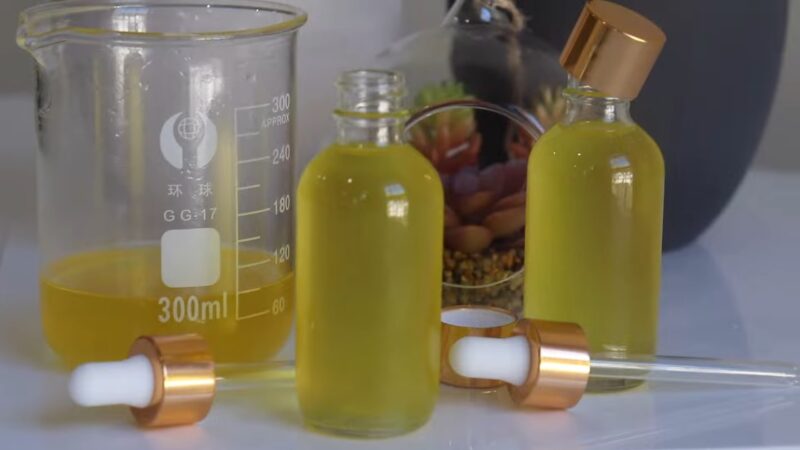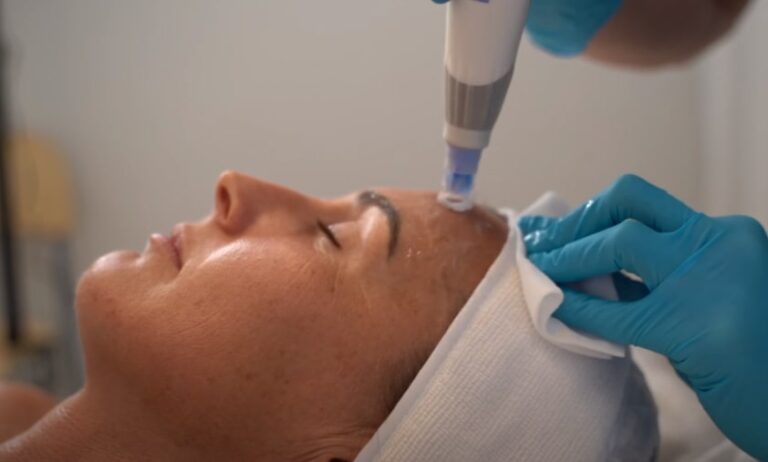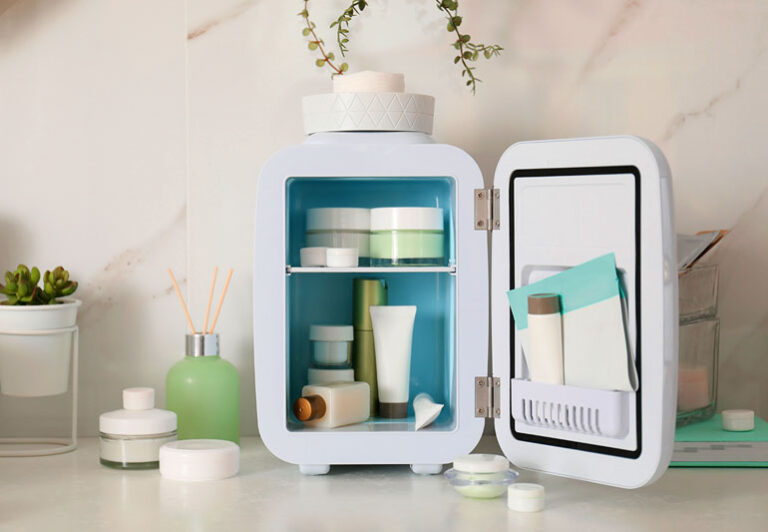Hey there, I’m a dermatologist with years of experience under my belt, and I’ve seen my fair share of skincare puzzles. Let me tell you, deciphering the list of ingredients on skincare products can be as tricky as a crossword puzzle.
Sure, a lot of these ingredients are your skin’s best friends, but some… well, they’re not so friendly. It’s super important to know which ones might throw a party on your skin and which ones are party poopers.
Because, at the end of the day, we all want skin that’s not just happy on the outside but healthy deep down.
Key Takeaways
- Be Cautious with Parabens: These preservatives might have estrogen-like effects. Common ones include methylparaben, ethylparaben, and propylparaben.
- Avoid Sulfates in Sensitive Skin: Sulfates like SLS and SLES can strip natural oils, causing dryness and irritation. They’re a no-go for sensitive skin types.
- Fragrance-Free is Often Safer: Unspecified ‘fragrances’ can be irritants. Opting for fragrance-free products is better for sensitive skin.
- Differentiate Alcohols in Skincare: Not all alcohols are bad. Avoid drying ones like ethanol and isopropyl alcohol, but fatty alcohols like cetyl alcohol are beneficial.
- Be Wary of Phthalates: These chemicals, often in fragrances, may disrupt the endocrine system. Look for phthalate-free products.
- Choose Safer Sunscreens: Avoid chemical sunscreens with oxybenzone and octinoxate. Opt for mineral sunscreens with zinc oxide or titanium dioxide.
- Patch Test New Products: Always do a patch test to avoid allergic reactions or irritation, especially when trying a new product.
- Natural Doesn’t Mean Harm-Free: Even natural or organic products can contain irritants or allergens. Always read labels carefully.
- Contact Dermatologist for Reactions: If a product causes a reaction, stop using it immediately and consult a dermatologist if needed.
- Stay Informed: Skincare ingredients and their impacts are constantly evolving. Keep up-to-date with the latest research and trends.
The Impact of Harmful Ingredients

Skincare products with detrimental components, potentially exacerbated by improper storage, can lead to a spectrum of problems. These range from slight discomfort to intense allergic responses and enduring harm to the skin.
Certain substances may even impact overall health, extending beyond mere skin-related concerns. Therefore, knowing what to avoid is as important as knowing what to seek in skincare products.
A Quick Peek
| Harmful Chemical | Examples | Potential Effects | Note |
|---|---|---|---|
| Parabens | Methylparaben, Ethylparaben, Propylparaben, Butylparaben | Estrogen-mimicking properties, linked to breast cancer and reproductive issues | Conclusive evidence is debated, but many avoid it as a precaution |
| Sulfates | Sodium Lauryl Sulfate (SLS), Sodium Laureth Sulfate (SLES) | Strips natural oils, leading to dryness, irritation, and allergic reactions | Sulfate-free options are recommended for sensitive skin |
| Fragrances | Various (not always specified) | Can cause skin irritation and allergies | Lack of ingredient transparency; fragrance-free is safer |
| Simple Alcohols | Ethanol, Isopropyl Alcohol, Denatured Alcohol | Drying, irritating, weakens the skin’s barrier | Avoid drying products; fatty alcohols are beneficial |
| Phthalates | Diethyl Phthalate (DEP) | May disrupt endocrine system, linked to reproductive issues | Safety is debated, many choose to avoid |
| Chemical Sunscreens | Oxybenzone, Octinoxate | Suspected hormone disruptors, linked to coral reef damage | Physical sunscreens with zinc oxide or titanium dioxide are safer |
Parabens: The Preservatives to Question
Parabens are widely used preservatives in the cosmetic industry. They prevent the growth of bacteria and mold in products, extending their shelf life.
However, studies have raised concerns about their potential estrogen-mimicking properties, which might be linked to breast cancer and reproductive issues. Common parabens include methylparaben, ethylparaben, propylparaben, and butylparaben.
While conclusive evidence is still debated, many prefer to err on the side of caution by avoiding these ingredients. These preservatives, which include methylparaben, ethylparaben, and others, are indeed a topic of debate.
Studies have indicated that parabens can disrupt endocrine function, and there were concerns about their presence in breast tumors. However, their direct link to cancer remains debated. The FDA continues to review the safety of parabens in cosmetics.
The American Chemical Society estimates that about 85% of personal care products contain parabens, reflecting their widespread use despite concerns.
Sulfates: More Than Just Lather
Sulfates are detergents responsible for the lather in cleansers and shampoos. The most common are sodium lauryl sulfate (SLS) and sodium laureth sulfate (SLES).
While effective at removing dirt and oil, sulfates can strip the skin of natural oils, leading to dryness, irritation, and in some cases, allergic reactions. Particularly for individuals with sensitive skin or conditions like eczema, sulfate-free options are recommended.
SLS (sodium lauryl sulfate) and SLES (sodium laureth sulfate) are commonly found in various personal care products. These chemicals act as surfactants and are effective cleansers, but they can also be drying and irritating, especially for sensitive skin or conditions like eczema (The Dermatology Review).
Fragrances: The Hidden Irritants

Fragrance in skincare can be a major source of skin irritation and allergies. The term ‘fragrance‘ can encompass numerous chemicals, which companies are not required to disclose due to trade secret laws.
This lack of transparency makes it difficult for consumers, especially those with sensitive skin or allergies, to identify potential irritants. Opting for fragrance-free products can be a safer choice.
The term ‘fragrance’ often covers a range of unknown chemical ingredients. These can include endocrine disruptors, carcinogens, and other harmful additives.
The exact composition is usually not disclosed, raising concerns about potential health impacts (Conscious Life and Style).
Alcohols: The Drying Duo
Not all alcohols are harmful in skincare, but simple alcohols like ethanol, isopropyl alcohol, and denatured alcohol can be overly drying and irritating to the skin. They are often used in toners and acne treatments for their quick-drying properties.
However, they can strip the skin of moisture and weaken the skin’s barrier, leading to increased sensitivity and dryness. Fatty alcohols like cetyl, stearyl, and cetearyl alcohol, on the other hand, are beneficial and hydrating.
Simple alcohols like ethanol and isopropyl alcohol can be drying and irritating to the skin. However, not all alcohols are harmful; fatty alcohols are known to be beneficial.
High concentrations of simple alcohols can damage the skin barrier, leading to dryness and potential acne breakouts (Emedi Health).
Phthalates: The Plasticizers
Phthalates are a group of chemicals used to make plastics more flexible and are also found in some skincare products to enhance the texture and absorption of other ingredients. Studies have suggested that certain phthalates may disrupt the endocrine system and are linked to reproductive issues.
Diethyl phthalate (DEP) is commonly used in fragrances. Like parabens, the debate continues on their safety, but many consumers choose to avoid them as a precaution.
Found in a variety of cosmetic products, phthalates are chemicals used to make plastics more flexible. They have been linked to endocrine disruption and reproductive issues.
The FDA notes that while some phthalates are rarely used now, others like diethyl phthalate (DEP) are still common in cosmetics (Conscious Life and Style).
Sunscreen Chemicals: A Double-Edged Sword
While sunscreen is essential for protecting the skin from UV radiation, certain chemical sunscreens have raised health concerns. Oxybenzone and octinoxate, commonly found in chemical sunscreens, are suspected to disrupt hormone activity and are also linked to coral reef damage.
Physical sunscreens containing zinc oxide or titanium dioxide are considered safer alternatives for both human health and the environment. Chemicals like oxybenzone are used in sunscreens for their ability to absorb UV rays.
However, there are concerns about their potential as endocrine disruptors and their impact on coral reefs. Physical sunscreens with zinc oxide or titanium dioxide are recommended as safer alternatives (Conscious Life and Style, The Dermatology Review).
FAQs

Can natural or organic skincare products also contain harmful ingredients?
Yes, natural or organic skincare products can still contain harmful ingredients. Natural ingredients can also be irritants or allergens, such as certain essential oils or plant extracts. It’s important to read labels and understand what each ingredient does, regardless of whether a product is marketed as natural or organic.
Are there any specific harmful ingredients to avoid for acne-prone skin?
For acne-prone skin, it’s advisable to avoid ingredients like coconut oil and isopropyl myristate, which can clog pores and exacerbate acne. Additionally, alcohol-based products might seem beneficial for drying out acne, but they can irritate the skin and lead to more oil production, worsening acne in the long term.
How do I identify harmful ingredients in products that don’t fully disclose their components?
In cases where products don’t fully disclose their ingredients, look for certifications like “paraben-free” or “sulfate-free.” You can also research the brand’s overall ingredient philosophy or reach out to their customer service for more information. Being cautious with products that have vague ingredient lists, such as those labeled simply as “fragrance,” is also advisable.
Is it necessary to avoid all types of alcohol in skincare products?
No, not all alcohols need to be avoided. Fatty alcohols like cetyl, stearyl, and cetearyl alcohol are beneficial for the skin as they are moisturizing. It’s the simple, drying alcohols like denatured alcohol, ethanol, and isopropyl alcohol that are generally recommended to be avoided, especially for those with dry or sensitive skin.
Are there any safe alternatives to chemical sunscreens that contain harmful ingredients?
Yes, physical or mineral sunscreens containing zinc oxide or titanium dioxide are safe alternatives. These ingredients sit on the skin’s surface and physically block UV rays, unlike chemical sunscreens that absorb them. They are less likely to irritate and are also considered safer for marine life.
What should I do if I react to a skincare product?
If you react to a skincare product, stop using the product immediately. Apply a gentle, hypoallergenic moisturizer to soothe the area, and avoid using other products until the reaction subsides. If the reaction is severe, consult a dermatologist. In the future, conducting a patch test before using new skincare products can help prevent adverse reactions.
Final Words
So, there you have it – a quick guide to dodging those not-so-great ingredients in your skincare routine. Remember, it’s all about keeping an eye on what’s in your products and making choices that work best for you and your skin.
Keep it simple, stay informed, and your skin will thank you!



